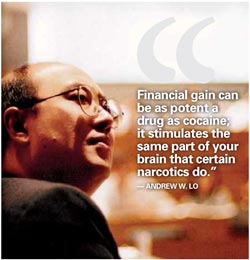The Opportunities Brought to You By Distress
Liquidity solutions, ‘risk’ accounting, transparency turned into competitive advantage—leading economist Andrew Lo argues that this crisis offers opportunities that are unique.
“Bubbles” are old. Variations on the most legendary one, Holland’s tulip craze of the 1630s, have recurred time and again. In the past decade alone, we’ve experienced the “dot-com” boom and bust, only to be followed by the current financial meltdown triggered by the decline in U.S. housing prices and reduced credit. Now, sifting through the debris of today’s crisis, economists and policy-makers alike are trying to assess why risk management systems and regulatory constraints didn’t kick in before the global economy became engulfed in red ink. Executives are trying to assess what the whole business means for how to run their companies. And nearly everyone is trying to get over the shock.
THE DOWNTURN MANIFESTO
A manager’s guide to surviving—and thriving—in recessionary times
But Andrew W. Lo is a lot less surprised than most seasoned observers. As the Harris & Harris Group Professor at MIT’s Sloan School of Management, director of the school’s Laboratory of Financial Engineering and founder and chief scientific officer of AlphaSimplex Group LLC, an investment adviser in Cambridge, Massachusetts, Lo has been studying the connections between financial decision making, neuroscience and evolutionary psychology for over a decade. His ideas about the role of human behavior in the financial markets have recently attracted the attention of policy-makers in Washington, who in addition to sorting out what led to the current crisis want to learn how to head off future destructive events.
The leading question
Why didn’t risk management systems and regulatory constraints kick in before the global economy collapsed?
Findings
- During bubbles and crashes, professional traders get swept away by emotions such as fear and anxiety.
- Many corporations did a terrible job of assessing and managing their risk exposures.
- Companies need to change the way they discuss and debate corporate strategy and how they measure and manage risk.
Testifying before the House Committee on Oversight and Government Reform last November, Lo pointed out that credit crises have been regular occurrences over the past 35 years and that typically they are resolved without regulatory interventions. “Financial crises are an unfortunate but necessary consequence of modern capitalism,” he explained. Financial losses, he added, are a byproduct of innovation, “but disruptions and dislocations are greatly magnified when risks have been incorrectly assessed and incorrectly assigned.�


Comments (2)
Ellen Gracie
dwiesen